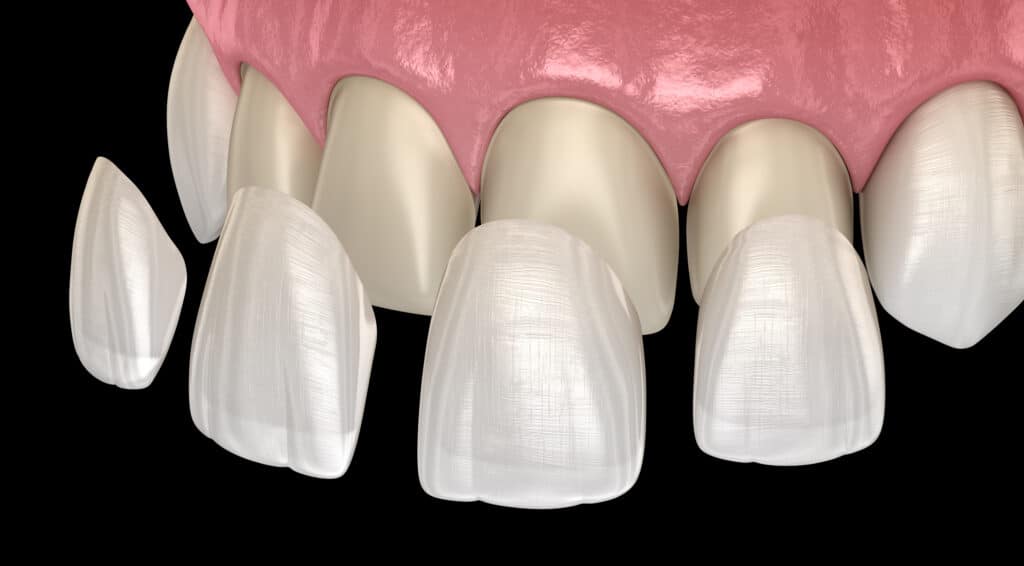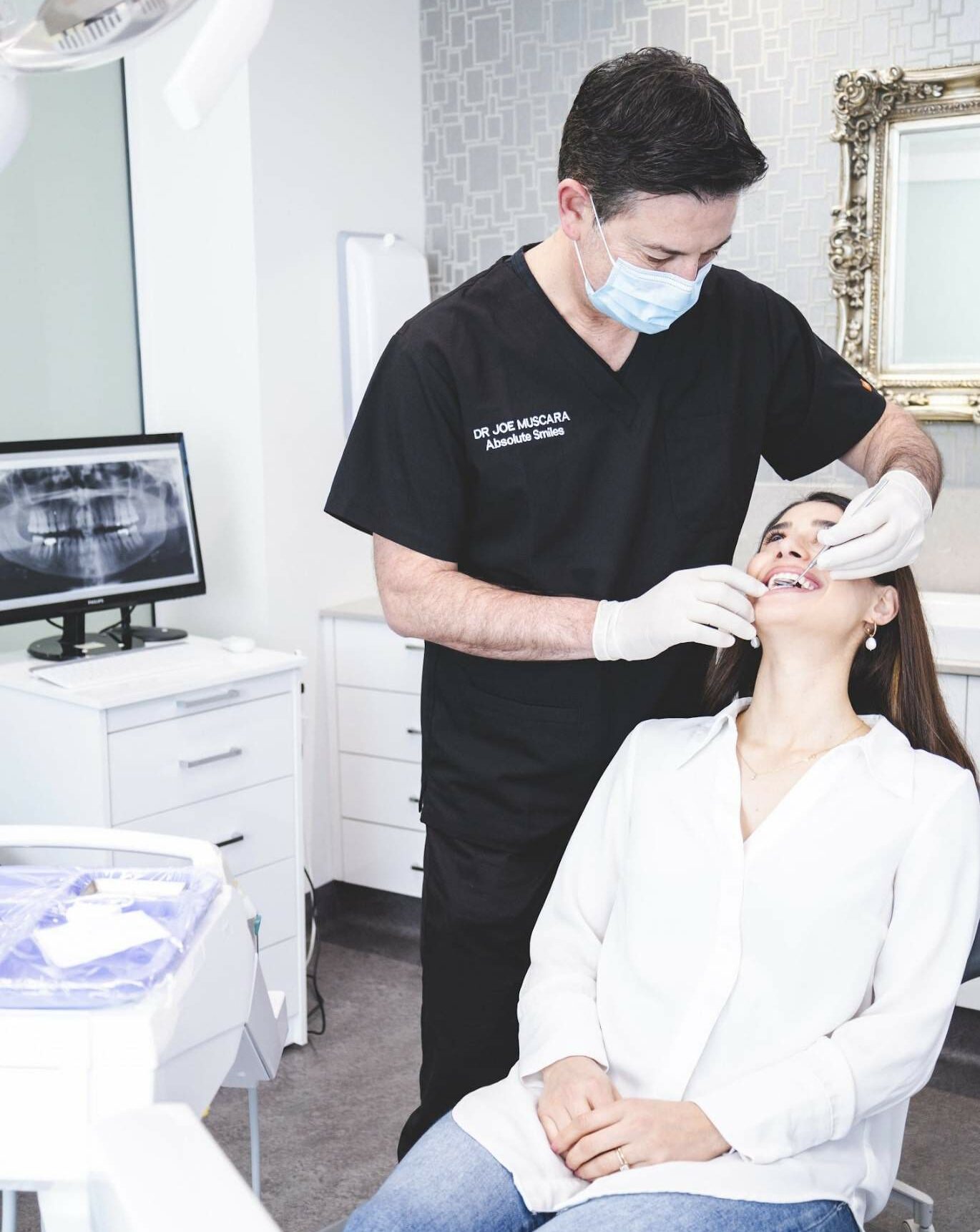Dental Veneers
Veneers are a popular cosmetic dental treatment that involves placement of a thin layer of either ceramic or composite resin onto the front surface of the teeth, to improve the appearance and aesthetics of a person’s smile.
There are 2 main types of Dental Veneers:
– PORCELAIN VENEERS
– COMPOSITE VENEERS
Veneers can simply enhance an already beautiful smile, or dramatically transform the appearance of your teeth and entire smile in a relatively short period of time.
FAQ
What are Dental Veneers Made of?
There are 2 types of Dental Veneers
1) Porcelain Veneers: These are thin shells of dental porcelain that are permanently bonded to the front surface of the teeth. They mimic the look of natural enamel and are custom designed to the specific shape and colour that a patient desires.
2) Composite Resin Veneers: These are also known as “composite bondings” and involve placing and adhering a layer of tooth coloured resin material to the front surface of the teeth. Whilst not as aesthetic or durable as porcelain veneers, composite bondings can be a great non-invasive way to quickly improve the look of teeth.
What Issues Can Dental Veneers Correct?
- Discoloured and stained teeth that don’t respond to conventional teeth whitening treatments.
- Teeth that are chipped or slightly worn.
- Teeth that are the incorrect length and/or shape.
- Closing gaps between the teeth.
- Crooked teeth that are unable to be straightened orthodontically.
What Is The Process Of Getting Porcelain Veneers?
- An initial consultation with your dentist to determine what result you are seeking and which treatment is right for your smile is essential.
- In cases where multiple teeth are being treated at once, a mock up of your new teeth will often need to be designed by your dentist before proceeding with any treatment to ensure that you can visualize and will be happy with the final result before committing to treatment.
- Teeth Preparation appointment: In the case of porcelain veneers, once the teeth are numbed, part of the tooth must be shaved away in order to make room for the porcelain. Impressions are then taken of your prepared teeth and temporary veneers are fitted, whilst your permanent veneers are being fabricated by our laboratory technicians.
- When your veneers are ready, your temporary ones will be removed and the new Porcelain veneers will be tried in, and then bonded permanently into position.
What Is The Process Of Getting Composite Veneers/Bondings?
Composite veneers or bondings can usually be completed in one session and often do not require any tooth shaving. Layers of composite resin material in the desired colour are bonded to the front of the tooth surface and then shaped and polished.
How Long Do Veneers Last?
Porcelain is a much stronger material then composite resin, meaning the lifespan of a porcelain veneer is also a lot longer. Porcelain veneers can last many years (10 +) however it is important to note that like anything, they require ongoing maintenance. Excellent oral hygiene at home and regular check ups and cleans at the dentist are essential to ensuring the maximum lifespan of the veneers. Clenchers and grinders MUST be fitted with a nightguard to ensure the veneers do not chip break or wear.
Composite veneers are considered a shorter term solution and are often a great “stepping-stone” to eventually having Porcelain veneers. They can often last up to 5 years, however due to the nature of the material they are much more prone to chipping and discolouring during this time.
How Much Do Veneers Cost?
As a guide, Porcelain veneers start at $1350 per tooth and composite veneers start at $400 per tooth. Each case is assessed on an individual basis and a full quote will be given to you at the time of your initial consultation.


Important things to note
Like any dental procedure, there are always risks and potential complications involved with Veneer Treatment. These Include:
- Tooth structure often has to be shaved away with porcelain veneer treatment, which can sometimes result in sensitivity to hot and cold that can be temporary and in some rare cases, ongoing.
- Porcelain Veneers are a permanent, irreversible treatment.
- Although strong, porcelain veneers can still crack and chip if there are underlying issues such as grinding, clenching, nail-biting, etc that haven’t been addressed.
- If proper oral hygiene and routine cleaning are not maintained, dental decay can occur around the margins of veneers.
- Composite veneers can be very prone to discolouring especially when exposed to smoking, coffee, tea, red wine and other staining drinks and foods and often need to be replaced for this reason.
- Nothing lasts forever! Although long lasting, porcelain veneers may need to be replaced in the future due to de-bonding, chipping, dental decay or excessive gum recession.
